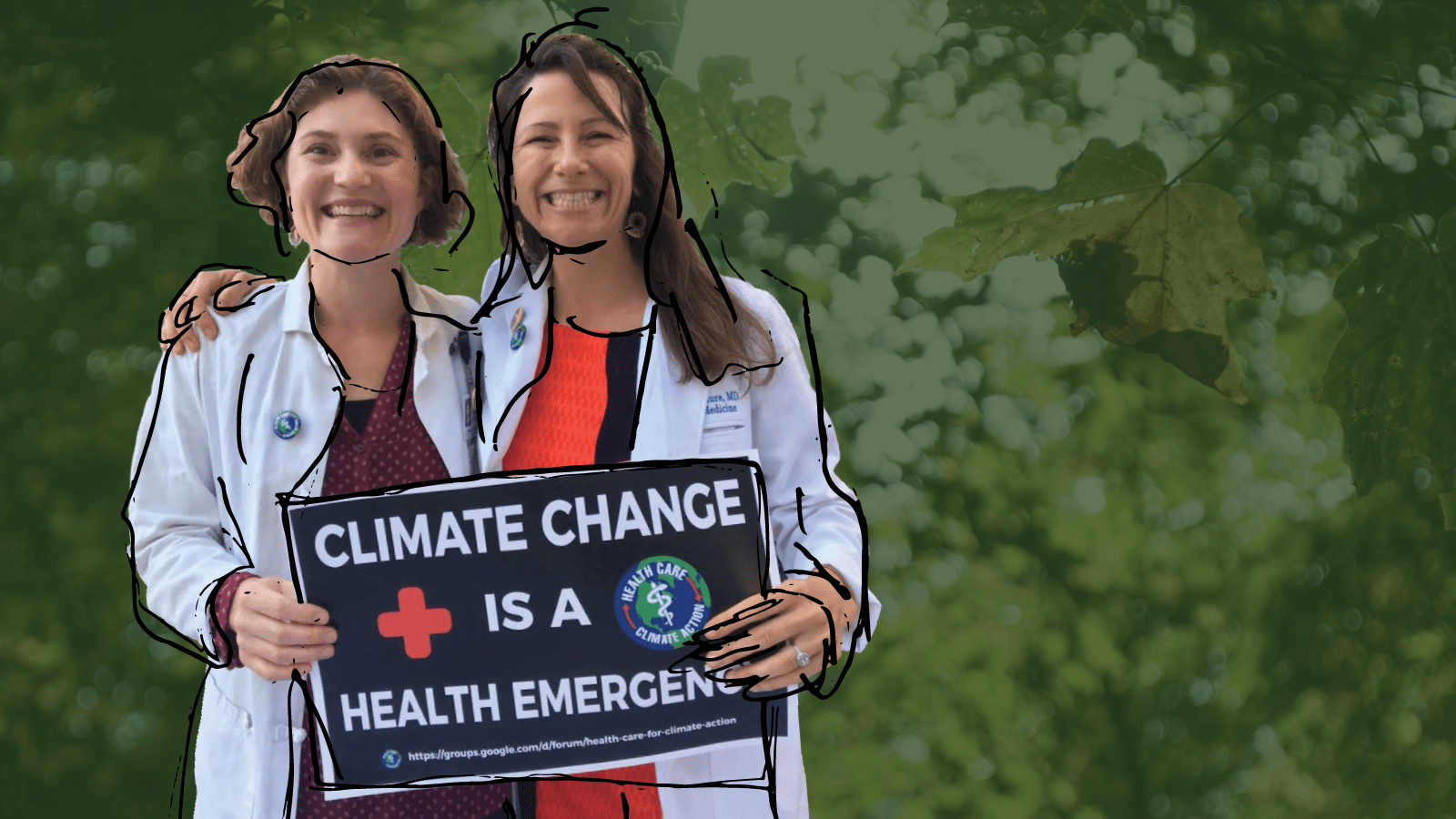As an ’80s child whose home life had been fractured by divorce, Ashley McClure found a sense of healing and belonging in nature. Beginning at age 8, the self-proclaimed horse-obsessed girl could be found most afternoons riding her beloved Lucky or Kami in a nearby old-growth forest just outside Seattle’s city limits.
“I spent time there when my family life was really chaotic,” she recalled recently. “When I was in those woods, I felt safe.”
Ashley wanted to help others feel that sense of safety. She threw herself into her studies and as a young adult went to medical school, eventually landing a job practicing outpatient primary care at a hospital in Oakland, California. Ashley was aware that global temperatures were rising, but she figured other people were taking care of it.
“I wanted to believe that somebody’s watching the house, that if everything is in peril, there are experts taking care of it,” she said. “In any rational world, you could believe that.”
Ashley’s ‘climate awakening’ happened during nap time
Named to honor both Spanish and English-speaking sides of the family, Ashley’s daughter, Callalucia, was born in May 2018.
That August, while still on maternity leave, Ashley watched the sequel to “An Inconvenient Truth” during Calla’s nap time. Seeing how climate change had worsened, she felt a shudder of new fear. Three months later, Paradise, California, was destroyed in the Camp Fire, which killed dozens of people.
The news felt personal.
“I just got so terrified that my daughter will never know that safety in nature that I had as a little girl,” she said. “And I felt so responsible.”
Ashley decided to take action. She read everything she could about climate change. In December, the day she returned from maternity leave, she held her first hospital-wide talk about the urgency of the climate crisis – with Calla nursing in her arms.
But Ashley quickly grew frustrated with her colleagues’ apathy and inaction.
“It got hard to even hang out with people who aren’t working in climate because I feel like we’re just talking about nothing,” she said. “I feel like nothing else matters.”
But she would soon meet an ally.
From routine check-up to climate heart-to-heart
In her practice, Ashley regularly hears from patients expressing anxiety and depression over wildfires.
On a summer day in 2019, she met with one such patient: pediatrician Amanda Millstein, who had come in for her own check-up. During the appointment, Amanda told Ashley that climate anxiety kept her awake at night. She described nightmares of being unable to get to her young children in a wildfire. She spoke of her fears for their future. She said she felt insane and alone in worrying so much.
Ashley had felt the same terror. She began to sense possibility.
“We could talk about pills for that,” she said to Amanda. “But the more important thing to say is: You’re responding in a normal way to a catastrophe. Every concern you’re sharing is totally valid, and – do you want to work together?”
Doctors and climate organizers, unite
Ashley pasted into Amanda’s after-visit summary a copy of the U.S. Call to Action on Climate, Health, and Equity, a petition urging policymakers to act on climate justice issues. Shortly after that, Amanda came to a rally Ashley had organized with other clinicians. They wore white coats, held signs that read “Climate is a health emergency,” and began brainstorming next steps.
Then, the two co-founded Climate Health Now, a group of California health professionals advocating for climate action. They started working together at odd times between clinic hours and daycare pickups, establishing regular Wednesday afternoon work sessions. When things got especially busy, they’d call each other at 5:30 a.m., Ashley with her matcha tea in her breakfast nook, and Amanda perched in a new shed-turned-office.
In between advocacy planning and coalition-building, the two started hiking together and attending each other’s kids’ birthday parties. They vented about intense clinic days, Zoom fatigue, and the stress of working parenthood.
“Before working with Ashley, I didn’t feel understood in the same way,” Amanda said in a recent interview. “We just have a lot of similar demands, whether it’s a sick kid or preschool is closed, it’s just like, no explanation needed.”
“She’s like a sister at this point,” Ashley said.
Finding safety – and power – in friendship
Today, having found her best friend and climate partner, Ashley feels more confidence in her work as a community organizer and the motivation to do more.
“I feel totally responsible for what our kids live in 2050, based on how asleep or courageous our generation right now decides to be,” Ashley said. “We can make a difference if we build really strong relationships with folks who care about it.”
The Seattle-area woods where Ashley found safety as a child endured record heat waves during the summer of 2021. It’s unclear what long-term damage triple-digit-degree weather may have caused.
But as uncertainty roils around her, Ashley now finds the belonging and healing she craved as a child, this time through friendship forged in climate action.
Source link


